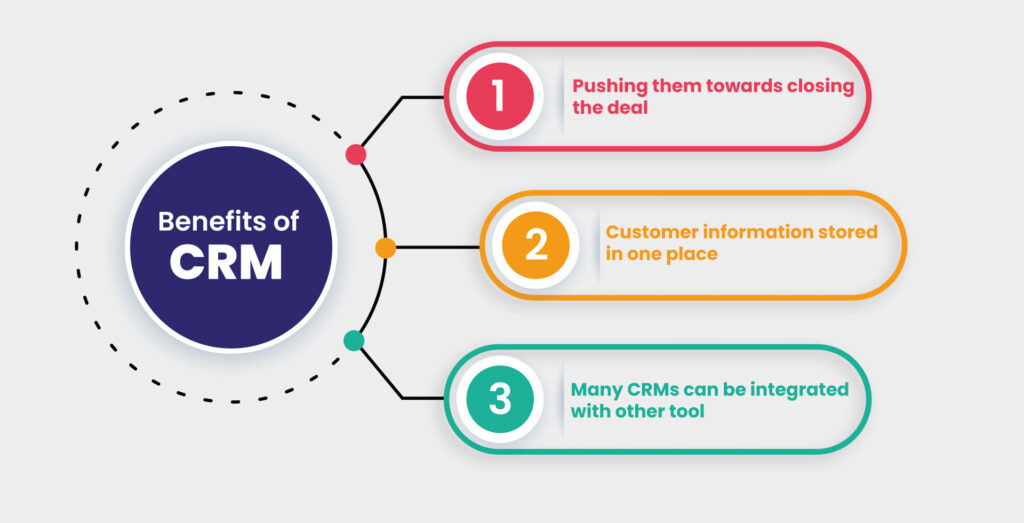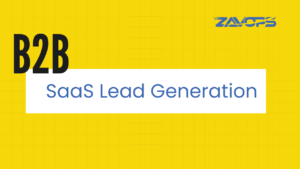
What are the Differences Between Marketing Automation Platform and CRM?
Introduction
If you are in sales, there’s a good chance that you are familiar with the differences between marketing automation platform and CRM. These are two powerful customer relationship technologies that can empower your business to better engage with your clients. The real challenge is to understand how these two work and if there is a need to combine them into one unified system.
While most of you are still struggling with the concept of CRM and not able to find the differences between marketing automation platform and CRM, marketing automation is relatively another new approach that is becoming the future of the business process. Thus, it is often confusing and not clear to the operators about how these two marketing and customer data platforms vary. In this article, we will cover all things related to these technologies like the differences between marketing automation platform and CRM, including their main functionalities and the benefits of integrating them.
What is Marketing Automation?
Marketing automation platform is a software technology designed for marketing reps to efficiently carry out marketing activities through various communication channels like email, websites, social media etc.
The use of marketing automation system streamlines the sales and marketing by replacing high-touch, manual, repetitive manual processes with automated marketing tools. It helps marketers to plan, coordinate and manage their marketing campaigns. The marketing automation software focuses on creation of more quality qualfieid leads for sales.

Benefits of Marketing Automation
Let’s list and discuss some of the most important benefits of marketing automation.
- It allows you to split and organize your contacts into different email lists and segments based on their different characteristics – their previous interactions with your company, their interests, pain points, needs, and preferences.
- Its lead-nurturing functionality helps you set up triggered campaigns, which means that appropriate emails will be automatically launched when a certain predefined action occurs – for example, when a new user registers they will get a welcome email, when their subscription is about to expire they will get a mail notifying them about that, or when someone makes a purchase they will get a thank you email. A drip campaign can also be scheduled so that your prospects are regularly informed about the latest news about your company.
- Analytics and reporting is a great feature that helps you gain valuable insight into how your campaigns perform, and what you can do to improve them.

What is CRM?
Customer Relationship Management is an approach in order to manage the company’s interaction with the current customer. It is one such management process in which the companies can maintain a good relationship and stay connected to the customers. In turn it also improves the profitability of the company.
CRM records and maintains all the essential details of your business process. One can easily map and monitor the sales activities. It provides up-to-date and easy access to any information. It helps businesses to close deals faster as it helps to develop better communication between all the departments and also ensures higher customer retention.

Benefits of CRM
- It allows salespeople, and everyone else in the company, see where every particular prospect is in the sales process, which can be of great importance when it comes to pushing them towards closing the deal.
- All the customer information stored in one place can help salespeople get a full picture of the customer they’re talking to, thus allowing them to personalize and tailor the conversation which is one of the crucial factors for getting them to make a purchase.
- Many CRMs can be integrated with other tools so that you can collect different metrics from other communication channels, such as social media, email marketing, or phone calls. This way it’s possible to establish which channel performs best and brings the most leads. This offers salespeople a comprehensive outlook on every interaction with every single customer.

Major Differences Between Marketing Automation Platform and CRM
CRM and marketing automation have the same goal at their core: to collect and manage customer data, which is subsequently utilized to drive sales and marketing actions. While CRM is mostly focused on sales, marketing automation software is primarily focused on internet marketing. Many CRM systems include marketing automation features and vice versa. In essence, the differences between marketing automation platform and CRM is more of a matter of focus than anything else.
Marketing automation focuses on the top of the sales funnel by helping you automate repetitive tasks around creating awareness and building interest in your business. With it, you can send targeted mass emails or text messages, nurture cold leads, and monitor the results of your efforts.
CRM takes over as those at the top of the funnel get closer to buying something. These tools focus on helping you build deeper relationships with potential customers by tracking their movement in your sales funnel, logging interactions, and giving your sales team the tools they need to close the deal. CRMs support lead qualification, actions early on in the sales cycle, quote generation, order confirmation, fulfillment, etc. While the two have similar features, their purposes are significantly different. You’d use both of these solutions in a perfect world because neither does the whole funnel.
Rather than working independently, marketing automation and CRM work in tandem. Consider the two systems to be runners in a relay race. Marketing automation prepares prospects ahead of time and hands them over to your CRM so that they can sell at the optimum moment. Instead of choosing one technology over the other, focus your resources on aligning marketing automation and CRM to your company. That’s called marketing.

Final Say
Alignment of differences between Marketing Automation platform and CRM System allows both sales and marketing departments to work together as a team.
The sales and marketing departments can work for each other with the help of the Marketing Automation Software and CRM as the marketing team becomes responsible for increasing the sales of the company and the sales team becomes responsible for improving the ROI (Return on Investment) of marketing campaigns.
The business firms that focus on alignment of sales and marketing in order to work more productively are the companies which are able to outshine in the market and push their competition into the background.
Ready to work smarter, not harder? Try Zavops today.




